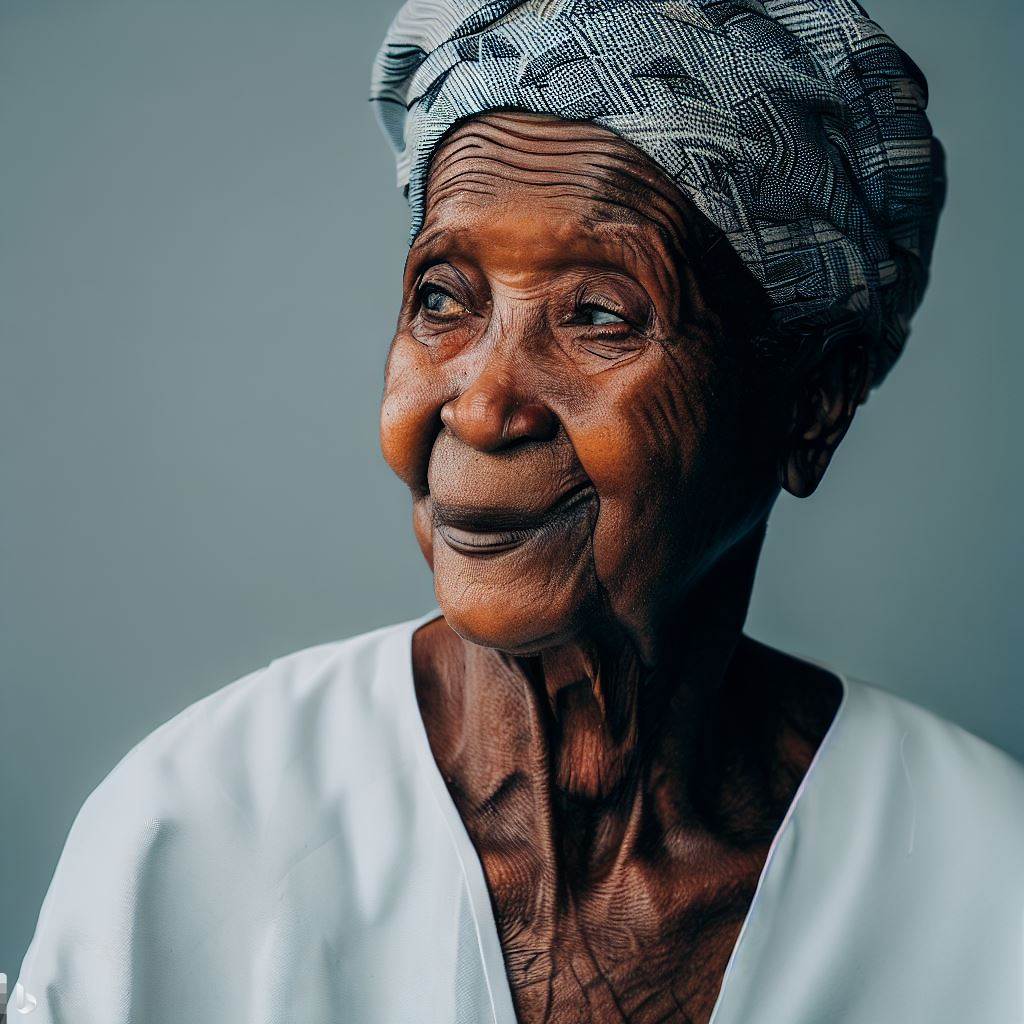Introduction
Occupational therapists play a crucial role in Nigeria, helping individuals regain independence and improve their overall quality of life.
The registration process for occupational therapists in Nigeria holds great significance in ensuring the competency and professionalism of these healthcare providers.
Brief Overview of the Importance of Occupational Therapists in Nigeria
Occupational therapists in Nigeria are essential healthcare professionals who specialize in helping individuals overcome physical, mental, and emotional barriers.
They assist people of all ages, from children to the elderly, to engage in activities that are meaningful and purposeful for their daily lives.
By helping individuals recover from injuries, manage chronic conditions, or cope with disabilities, occupational therapists contribute to the overall well-being of the Nigerian population.
The Significance of the Registration Process for Occupational Therapists
The registration process for occupational therapists in Nigeria is of utmost importance. It ensures that all practitioners meet the required standards of education, training, and competency in order to provide safe and effective care to their patients.
By undergoing the registration process, occupational therapists are held accountable for their professional conduct and ethical practices, which in turn protects the welfare of the individuals they serve.
Additionally, it allows the government and regulatory bodies to keep track of the number and distribution of occupational therapists across the country, which aids in workforce planning and resource allocation.
Basically, occupational therapists in Nigeria play a vital role in improving the lives of individuals, and the registration process ensures their competence and professional standards, benefiting both the therapists and the people they serve.
Background of Occupational Therapy in Nigeria
Occupational therapy is a healthcare profession that helps individuals regain independence in daily activities.
In Nigeria, occupational therapy began to gain recognition and develop in the late 1970s.
It was initially introduced in the psychiatric field but has now expanded to various healthcare settings.
The Nigerian Society of Occupational Therapists (NSOT) was established in 1977 to promote the profession.
Overview of the development and growth of occupational therapy profession in Nigeria
Since its inception, the field of occupational therapy has witnessed significant progress in Nigeria.
The number of occupational therapy training institutions has increased, leading to more graduates.
Nigeria now boasts several specialties in occupational therapy, including pediatrics, geriatrics, and mental health.
Continuing education programs have been introduced to enhance the skills and knowledge of occupational therapists.
Research in occupational therapy is also gaining momentum with increased funding and awareness.
The role of occupational therapists in the healthcare system
Occupational therapists play a crucial role in the Nigerian healthcare system.
They collaborate with other healthcare professionals to provide holistic care to patients.
Occupational therapists assess the needs and abilities of individuals, developing customized treatment plans.
They help patients improve their physical, cognitive, and emotional abilities to engage in meaningful activities.
Occupational therapists also educate patients and their families on adaptive techniques and equipment.
They contribute to the early intervention and rehabilitation of patients across various healthcare settings.
In essence, occupational therapy in Nigeria has grown tremendously over the years.
The profession has experienced significant development, ranging from the establishment of the NSOT to the expansion of training institutions.
The role of occupational therapists in the healthcare system is vital, as they contribute to the overall well-being and functional independence of individuals.
With the continuous growth and recognition of occupational therapy in Nigeria, the profession is poised to make even more significant contributions to the healthcare sector in the future.
Read: The Significance of Drilling Engineers in the Gas Industry of Nigeria
Importance of Registration
Registration is a crucial process for occupational therapists in Nigeria.
It serves a variety of important functions and provides numerous benefits and protections for both therapists and the public.
In this section, we will explore the significance of registration and the implications it has for occupational therapists in the country.
Explanation of Why Registration is Important for Occupational Therapists
The registration process is essential for occupational therapists as it ensures that they meet the necessary qualifications and standards to practice.
Through registration, therapists are required to demonstrate their competence, knowledge, and skills in their field.
By verifying therapists’ qualifications and expertise, registration provides a level of assurance to the public that they are receiving care from professionals who possess the necessary training and competence to address their healthcare needs effectively.
Benefits and Protections Provided by Registration
Registration offers several benefits and protections to both occupational therapists and the general public:
- Quality Assurance: Registration ensures that therapists are qualified and competent, maintaining the quality of occupational therapy services provided.
- Professional Standards: Registered therapists are bound by a code of conduct and ethical guidelines, promoting ethical behavior and professionalism within the field.
They are required to continuously update their knowledge and skills through professional development, ensuring that they stay abreast of the latest advancements in occupational therapy practices. - Public Safety: Registration safeguards public health and safety by regulating the practice of occupational therapy.
The registration board has the authority to take disciplinary action against therapists who breach professional standards, providing a mechanism for accountability. - Consumer Confidence: Having registered therapists inspires confidence in the public, as they can trust that their healthcare needs will be met competently and ethically.
- Insurance Coverage: Many insurance providers require therapists to be registered to provide reimbursement for occupational therapy services.
Legal and Ethical Obligations of Registered Occupational Therapists
Registered occupational therapists have specific legal and ethical obligations that they must adhere to:
- Compliance with Laws and Regulations: Registered therapists must comply with all relevant laws, regulations, and policies governing the practice of occupational therapy in Nigeria.
- Confidentiality and Privacy: They are obligated to protect the privacy and confidentiality of their patients’ information in accordance with professional standards and legal requirements.
- Duty of Care: Registered therapists have a duty of care towards their patients, ensuring that they provide safe and effective treatment while prioritizing the well-being of individuals under their care.
- Professional Conduct: Therapists must maintain professional conduct, treating patients with respect and dignity, and avoiding any form of misconduct or exploitation.
In general, registration plays a vital role in the occupational therapy profession in Nigeria.
It ensures that therapists meet the necessary qualifications and standards, promoting quality care and protecting the public.
By being registered, occupational therapists commit to upholding ethical guidelines and legal obligations, further enhancing the trust and confidence placed in them by the public.
Read: The Demand for Petroleum Engineers in Nigeria: A Deep Dive
Regulatory Bodies for Occupational Therapy in Nigeria
Occupational therapy is a vital healthcare profession that helps individuals regain their independence and improve their overall quality of life.
In Nigeria, the registration process for occupational therapists is overseen by several regulatory bodies. These bodies ensure that all practitioners meet the necessary qualifications and adhere to ethical standards.
Let’s take a closer look at these regulatory bodies and their roles and responsibilities.
Nigerian Occupational Therapy Association (NOTA)
NOTA is the primary regulatory body responsible for the registration and regulation of occupational therapists in Nigeria.
The association plays a crucial role in promoting the advancement of occupational therapy and ensuring professional development.
To become a registered member of NOTA, occupational therapists must meet specific educational and professional requirements.
Medical Rehabilitation Therapists Board (MRTB)
MRTB is a federal government agency established to regulate and standardize the practice of different rehabilitation professions, including occupational therapy.
This body ensures that occupational therapists adhere to ethical guidelines and maintain the highest level of professional competence.
Occupational therapists must obtain a license from MRTB to practice legally in Nigeria.
West African Health Examination Board (WAHEB)
WAHEB is responsible for conducting professional examinations and issuing certificates to healthcare professionals, including occupational therapists.
It ensures that the knowledge and skills of occupational therapists meet the required standards for safe and effective practice.
Occupational therapists must pass the WAHEB examination to be eligible for registration.
Read: Top Institutions to Study Phlebotomy in Nigeria
National Universities Commission (NUC)
NUC is responsible for the accreditation of tertiary educational institutions in Nigeria, including universities offering occupational therapy programs.
Occupational therapy programs must meet the NUC’s standards to ensure the quality of education and training provided.
Students must graduate from a NUC-accredited program to be eligible for registration as occupational therapists.
Overall, these regulatory bodies work together to protect the public and maintain the integrity of the occupational therapy profession in Nigeria.
They ensure that practitioners have the necessary qualifications and skills to provide safe and effective care.
By obtaining the required licenses and certifications, occupational therapists can practice legally and build trust with their clients.
It is crucial for aspiring occupational therapists in Nigeria to familiarize themselves with the registration process and requirements set out by these regulatory bodies.
By doing so, they can ensure a smooth transition from their educational journey to professional practice.
Ultimately, the Nigerian Occupational Therapy Association, Medical Rehabilitation Therapists Board, West African Health Examination Board, and National Universities Commission are the key regulatory bodies responsible for the registration process of occupational therapists in Nigeria.
These bodies play a crucial role in maintaining standards, ensuring competence, and promoting the advancement of occupational therapy in the country.
Read: Understanding the Role of Geoscientists in Nigeria’s Oil Industry

Registration Process for Occupational Therapists in Nigeria
In Nigeria, occupational therapists play a vital role in assisting individuals to regain their independence and improve their quality of life.
To practice as an occupational therapist in the country, professionals must go through a rigorous registration process.
This blog section will provide a step-by-step explanation of the registration process, discuss the education requirements and qualifications, and emphasize the need for continuing education and professional development.
Step-by-Step Explanation of the Registration Process
- Obtain a Bachelor’s degree in Occupational Therapy from a recognized university or educational institution.
- Complete a one-year internship program in an approved healthcare facility.
- Apply for a temporary practice permit from the Medical Rehabilitation Therapist Board of Nigeria.
- Pass the qualifying examination conducted by the board.
- Submit the required documents, including academic transcripts, certificate of internship completion, and proof of payment for registration.
- Upon successful completion, receive a certificate of full registration as an Occupational Therapist in Nigeria.
Read: The Role of Exercise Physiology in Nigeria’s Sports Industry
Educational Requirements and Qualifications
An individual aspiring to become an occupational therapist in Nigeria must meet specific educational requirements and qualifications.
The minimum academic qualification is a Bachelor’s degree in Occupational Therapy. The program should be accredited by the Medical Rehabilitation Therapist Board of Nigeria and recognized by the Ministry of Health.
Additionally, the candidate must successfully complete a one-year internship program in an approved healthcare facility.
The Need for Continuing Education and Professional Development
Continuing education and professional development are crucial for occupational therapists to stay updated with the latest research, advancements, and techniques in their field.
Occupational therapy is a dynamic and evolving profession, and practitioners need to enhance their knowledge and skills continuously. This ensures the provision of effective and evidence-based interventions for clients.
Occupational therapists can participate in workshops, seminars, conferences, and training programs to acquire new knowledge and enhance their professional competencies.
These activities provide platforms for networking, collaboration, and sharing best practices with colleagues in the field.
Additionally, professional bodies such as the Nigerian Association of Occupational Therapists (NAOT) facilitate ongoing professional development opportunities for their members.
They organize webinars, research presentations, and forums where occupational therapists can engage in discussions and learn from experts in the field.
Continuing education not only enhances the skills and knowledge of occupational therapists but also demonstrates their commitment to delivering quality care to their clients.
It boosts professional credibility and ensures that therapists remain competent and competent throughout their careers.
In review, the registration process for occupational therapists in Nigeria involves obtaining a Bachelor’s degree, completing an internship program, passing a qualifying examination, and submitting relevant documents.
Continuing education and professional development are vital for occupational therapists to stay current and deliver high-quality care.
By adhering to the registration process and prioritizing lifelong learning, occupational therapists in Nigeria contribute to the advancement of the profession and the overall well-being of their clients.
Read: Exploring the Top Paying Oil and Gas Professions in Nigeria
Explore Further: Specializations in Medicine: A Deep Dive into Nigeria’s Healthcare
Challenges in the Registration Process for Occupational Therapists in Nigeria
Identification of common challenges faced by occupational therapists during the registration process
- Lack of awareness regarding the registration process and its requirements.
- Difficulty in obtaining all the necessary documents and paperwork.
- Inadequate guidance and support from regulatory authorities.
- Different interpretations of the registration guidelines by different registration boards.
- Lengthy and time-consuming documentation and verification process.
- Inconsistent communication and delays in receiving updates and feedback.
- Inability to meet the financial demands associated with the registration process.
- Language barriers and difficulties in understanding the registration instructions.
- Insufficient access to relevant educational resources for fulfilling registration requirements.
- Incomplete or inaccurate information provided by applicants leading to rejections.
Potential reasons for delays or rejections in the registration process
Delays or rejections in the registration process can occur due to various reasons:
- Missing or incomplete documentation, such as academic transcripts or birth certificates.
- Lack of clarity within the application form or failure to provide required information.
- Failure to meet educational or experience requirements specified by the regulatory board.
- Insufficient proof of professional competence or clinical practice hours.
- Non-compliance with the ethical guidelines and professional standards set by the regulatory body.
- Submission of fraudulent or forged documents leading to immediate rejection.
- Failure to pay the registration fees within the specified time frame.
- Unavailability of slots for registration due to a high number of applicants.
- Changes in government policies or regulations affecting the registration process.
Possible solutions or suggestions to overcome these challenges
To address the challenges faced by occupational therapists during the registration process, the following suggestions can be considered:
Publish Your Professional Profile, Business or Brand
Showcase your expertise, gain trust, and boost visibility instantly on Professions.ng.
Publish Now- Enhance awareness by organizing seminars, webinars, and workshops to inform therapists about the registration process and requirements.
- Establish clear and comprehensive guidelines with detailed instructions to prevent confusion and misunderstandings.
- Improve communication channels and responsiveness of regulatory bodies by introducing online portals and regular updates.
- Provide assistance and guidance to therapists in gathering all the necessary documents and paperwork.
- Offer support programs for therapists who face financial difficulties, such as installment options for registration fees.
- Develop standardized registration processes across all regulatory boards to ensure consistency and reduce delays.
- Foster collaboration between regulatory bodies, educational institutions, and therapists to streamline the registration process.
- Invest in technology to automate the documentation verification process and reduce manual errors.
- Establish a grievance redressal mechanism to address any issues or complaints raised by therapists during the registration process.
- Provide language assistance and translation services to overcome language barriers for non-English speaking applicants.
In summary, the registration process for occupational therapists in Nigeria poses several challenges, including lack of awareness, documentation difficulties, and inconsistent communication.
However, by implementing the suggested solutions, it is possible to overcome these obstacles and create a more seamless and efficient registration process for occupational therapists in Nigeria.
Read: How to Become a Medical Lab Technician in Nigeria
Conclusion
The registration process for occupational therapists in Nigeria is of utmost importance. It ensures that individuals practicing occupational therapy meet the necessary standards and qualifications.
By being registered, occupational therapists can provide quality care to their clients and contribute to the overall improvement of healthcare in Nigeria.
The registration process for occupational therapists in Nigeria is essential as it guarantees that practitioners have the necessary skills, knowledge, and qualifications to provide effective occupational therapy services.
It ensures that occupational therapists are held accountable for their practice and adhere to professional standards.
The registration process for occupational therapists in Nigeria consists of several components. The first step is to complete a recognized occupational therapy program.
Next, individuals must pass the National Occupational Therapy Board Examination.
Once these requirements are met, aspiring occupational therapists can apply for registration with the Association of Occupational Therapists of Nigeria (AOTN).
To aspiring occupational therapists, we encourage you to prioritize completing the registration process.
It not only enhances your professional credibility, but it also provides you with opportunities for career growth and development.
For current occupational therapists who are yet to register, we urge you to take the necessary steps to become registered.
Registration validates your expertise and ensures that you are recognized as a competent occupational therapist in Nigeria.




